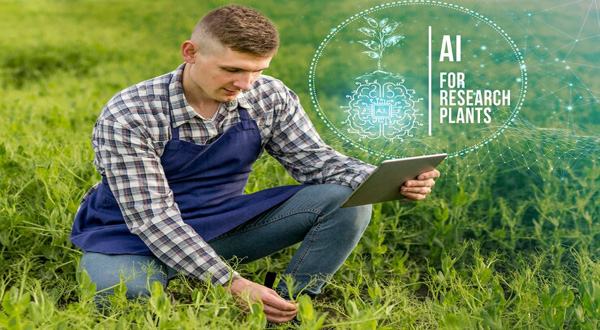Advantages of Artificial Intelligence in Agriculture
- Update Time : Saturday, March 9, 2024
- 20 Time View

Introduction
Advantages of Artificial Intelligence in Agriculture: Welcome to the world of agriculture transformed by artificial intelligence (AI)! In this article, we’ll explore the remarkable advantages that AI brings to farming practices and how it revolutionizes the way we cultivate crops and raise livestock.
Table of Contents
| Sr | Headings |
|—–|—————————————|
| 1. | Increased Efficiency |
| 2. | Precision Agriculture |
| 3. | Crop Monitoring and Management |
| 4. | Pest and Disease Detection |
| 5. | Automated Machinery |
| 6. | Weather Forecasting and Planning |
| 7. | Soil Management and Conservation |
| 8. | Data-Driven Decision Making |
| 9. | Resource Optimization |
| 10. | Enhanced Crop Quality and Yield |
| 11. | Reduction in Labor Dependency |
| 12. | Environmental Sustainability |
| 13. | Affordable Technology Access |
| 14. | Improved Livestock Management |
| 15. | Conclusion |
Increased Efficiency
AI streamlines agricultural processes, reducing manual labor and time while increasing overall productivity.
Precision Agriculture
By employing AI-driven tools like drones and sensors, farmers can precisely target areas for irrigation, fertilization, and pesticide application, leading to optimal resource utilization.
Crop Monitoring and Management
AI-powered systems monitor crop health in real-time, detecting anomalies and suggesting appropriate interventions to ensure healthier yields.
Pest and Disease Detection
With AI algorithms analyzing data from various sources, farmers can swiftly identify pest infestations and diseases, preventing widespread crop damage.
Automated Machinery
AI-integrated machinery such as robotic harvesters and autonomous tractors automate tedious tasks, allowing farmers to focus on higher-value activities.
Read More: The Advantages of Artificial Intelligence Essay
Weather Forecasting and Planning
AI algorithms process vast amounts of meteorological data to provide accurate weather forecasts, enabling farmers to plan operations effectively.
Soil Management and Conservation
AI helps in soil analysis, recommending precise fertilization and conservation methods to maintain soil health and prevent degradation.
Data-Driven Decision Making
By analyzing data on crop performance, weather patterns, and market trends, AI empowers farmers to make informed decisions for better outcomes.
Resource Optimization
AI optimizes resource usage by adjusting irrigation, fertilization, and energy consumption based on real-time conditions, reducing waste and costs.
Enhanced Crop Quality and Yield
Through AI-enabled insights and interventions, farmers can enhance the quality and yield of their crops, meeting market demands efficiently.
Reduction in Labor Dependency
AI-driven automation reduces the need for manual labor, addressing labor shortages and improving the efficiency of agricultural operations.
Environmental Sustainability
AI promotes sustainable farming practices by minimizing chemical usage, conserving resources, and reducing environmental impact.
Affordable Technology Access
Advancements in AI technology make it more accessible and affordable for farmers, leveling the playing field and increasing competitiveness.
Improved Livestock Management
AI monitoring systems track livestock health and behavior, enabling early detection of illnesses and optimizing breeding and feeding practices.
Read More: Unlocking the Power of Artificial Intelligence PDFs: A Guide for Everyone
Conclusion
In conclusion, artificial intelligence is transforming agriculture by enhancing efficiency, precision, and sustainability. From crop monitoring to livestock management, AI-driven solutions offer a multitude of benefits that revolutionize farming practices for a brighter, more sustainable future.
FAQs (Frequently Asked Questions)
- How does AI benefit small-scale farmers?
AI enables small-scale farmers to access cutting-edge technology for precise crop management, reducing costs and maximizing yields.
- Can AI help in reducing pesticide usage?
Yes, AI can detect pest infestations early and suggest targeted interventions, minimizing the need for widespread pesticide application.
- Is AI affordable for farmers in developing countries?
Yes, advancements in AI technology are making it more affordable and accessible, benefiting farmers in developing countries.
- How does AI contribute to environmental sustainability in agriculture?
AI promotes sustainable farming practices by optimizing resource usage, reducing chemical inputs, and minimizing environmental impact.
- What role does AI play in livestock management?
AI monitoring systems track livestock health and behavior, enabling early detection of illnesses and optimizing breeding and feeding practices.
Join the AI-driven agricultural revolution today for a more efficient, sustainable, and prosperous farming future!












